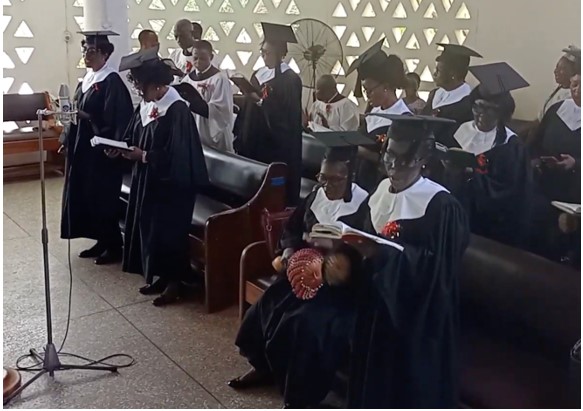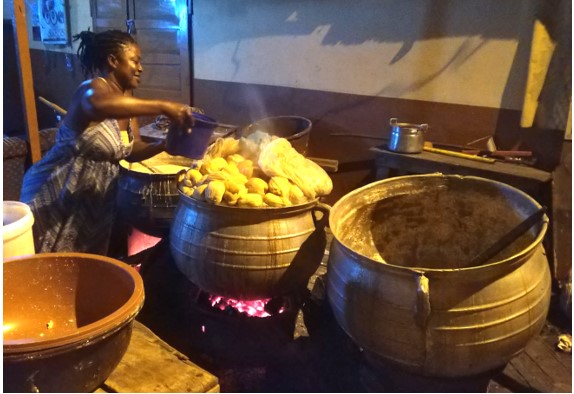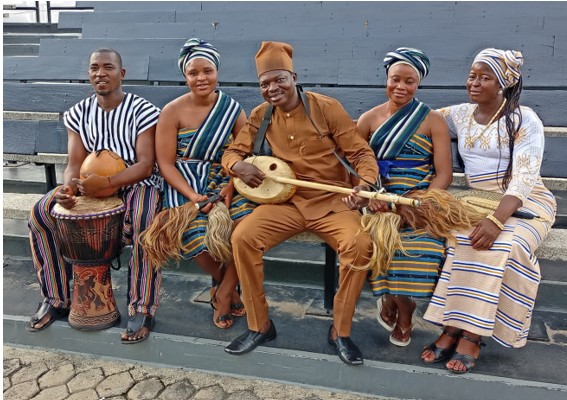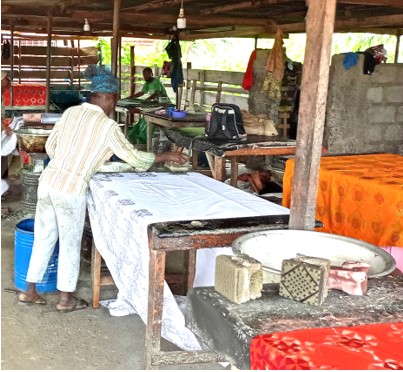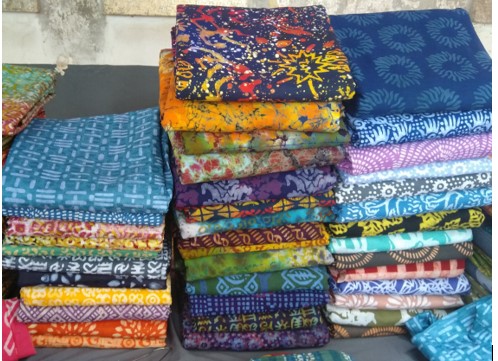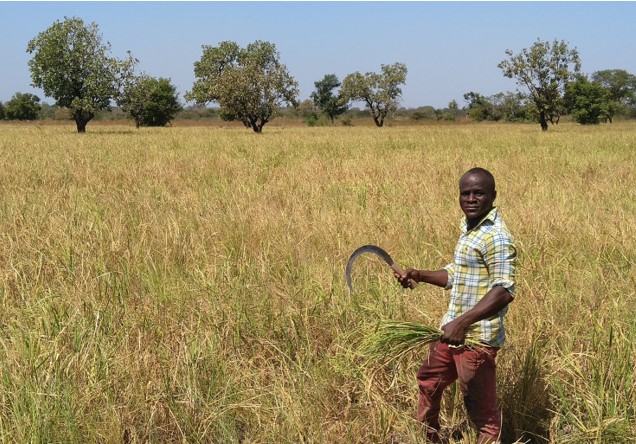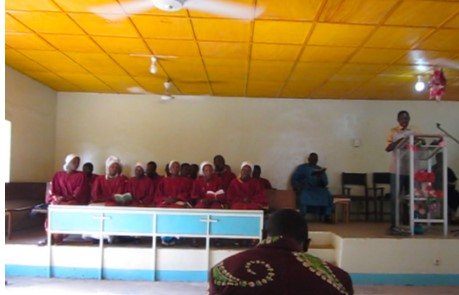A Letter from Josh Heikkila, mission co-worker serving in Ghana
Winter 2024
Write to Josh Heikkila
Individuals: Give online to E132192 in honor of Josh Heikkila’s ministry
Congregations: Give to D500115 in honor of Josh Heikkila’s ministry
Churches are asked to send donations through your congregation’s normal receiving site (this is usually your presbytery).
Subscribe to my co-worker letters
Dear friends,
From time to time, I find myself in church listening to a beautiful hymn sung in a rich West African style, accompanied by drums, gongs, and gourd maracas, and it will hit me that this is a European tune adapted in ways to meet the culture and context of a country like Ghana, Togo or Niger. For me, it’s both something old and something new, and the resulting synthesis is beautiful beyond description.
Let me refer you to a video I uploaded to YouTube, where the choir of the Evangelical Presbyterian Church of Dansoman, Accra, sings the hymn tune Darwall, which some of us from the United States might recognize as “Rejoice, the Lord is King.” Find it at youtube.com/watch?v=15QXbSMOs0M.
I wonder if Rev. John Darwell, who composed the tune in 1770, could have imagined it would be performed in this vibrant way in 21st century Africa. If he were to experience it now, I hope he’d be happy to hear his song interpreted in a way that would have been completely unfamiliar to him in 18th century England.Before coming to Ghana, I worked at a church in St. Paul, Minnesota. There was a book that was well-read in the community written by Macalester College Professor Jack Weatherford. The book had the unusual title Indian Givers: How the Indians of the Americas Transformed the World. Weatherford pointed out things readers should have known all along – like how South American silver allowed for the development of global capitalism, and how food from the Americas such as corn, potatoes and tomatoes revolutionized the world’s diet. I like a sentence from the book that explains, “With the arrival of the first foods from America, Italian cuisine exploded with new ideas, and the tables of rich and poor alike groaned under the weight of many marvelous new dishes” (Indian Givers, p. 104).
I can’t help but think of Weatherford’s book as I eat kenkey, the traditional meal of the Ga people of Accra, which is a dumpling made of fermented corn dough. Although not indigenous to Ghana, corn has been here so long, and it has become so intertwined with the culture, you’d never know it was introduced from outside. I could go on and on with examples of how the Americas, Europe, Asia and Africa have influenced each other, how the creativity and ingenuity that have come into play, and the incredible things that have grown out of this interaction.
The precursor to the banjo, for example, is a stringed gourd instrument from West Africa which was brought to the Americas with the slave trade. It transformed the traditional music produced in the United States. Batik cloth-making techniques were learned by European traders visiting Indonesia and then brought to West Africa. As those techniques evolved in their new location, a colorful type of indigenous dress took shape in this part of the world.
Last year, I was shocked when I learned how indigenous West Africans, who had centuries of experience planting, harvesting, and processing rice, were targeted for enslavement and brought to the southern U.S. colonies for the sole purpose of transferring their knowledge of rice production. According to the Gullah Museum of Georgetown, South Carolina, rice cultivation “made the South Carolina colony one of the richest of the 13 original colonies. It made Charleston one of the richest cities in the world during the Colonial and Antebellum periods.” (See “Rice Culture,” gullahmuseumsc.com/new-page-2.)
A Ghanaian-British American philosopher, Kwame Anthony Appiah, wrote an article I refer to quite a bit entitled “The Case for Contamination,” in which he discusses these cultural interactions at length. People are not blank slates, Appiah writes, who ignorantly adopt outside influences. Rather, he explains, “how people respond to these cultural imports depends on their existing cultural context.” We receive influences, and we shape them for our context. We make them our own by adopting aspects of them we like and discarding those we don’t. These influences and changes are what make cultures interesting and alive!
One of the more interesting things about living in West Africa is witnessing the vibrant cultures of the region, which for centuries have enriched the world and also been enriched by it in return. Sadly, some of this interaction happened under the crimes and sins of the slave trade and colonialism, and we need to find ways to atone for these past wrongs.
As Christians, though, I think we trust that God can inspire us to find new ways forward when at times there seems to be no way. Despite the shameful origins of some of these exchanges, I hope that learning the ways our cultures have influenced and been influenced by each other might be a way we learn to love and appreciate each other. In itself, this could be the start of a process of reconciliation.
I know the church in the U.S. has been enriched by musical and liturgical traditions we have learned from around the world. We have been influenced for centuries by contributions from Africa, and we continue to receive so many gifts from the African church. In the year ahead, I hope you will think of ways you might engage with our Presbyterian partners in West Africa. As you share with them the gifts God has given to you, I know you will be enriched as our partners in Africa share from the abundant blessings God has also given to them.
Merry Christmas and Happy New Year to you!
Josh
![]() You may freely reuse and distribute this article in its entirety for non-commercial purposes in any medium. Please include author attribution, photography credits, and a link to the original article. This work is licensed under a Creative Commons Attribution-NonCommercial-NoDeratives 4.0 International License.
You may freely reuse and distribute this article in its entirety for non-commercial purposes in any medium. Please include author attribution, photography credits, and a link to the original article. This work is licensed under a Creative Commons Attribution-NonCommercial-NoDeratives 4.0 International License.
